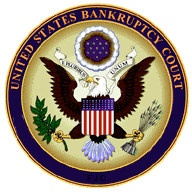
Common law is the body of law primarily developed through judicial decisions rather than statutes. Although common law may incorporate certain statutes, it is largely based on precedent—judicial rulings made in previous similar cases. The presiding judge determines which precedents to apply in deciding each new case.
Jurisdiction is the legal term for the legal authority granted to a legal entity to enact justice. In federations like the United States, the concept of jurisdiction applies at multiple levels.

The Fourteenth Amendment to the United States Constitution was adopted on July 9, 1868, as one of the Reconstruction Amendments. Usually considered one of the most consequential amendments, it addresses citizenship rights and equal protection under the law and was proposed in response to issues related to formerly enslaved Americans following the American Civil War. The amendment was bitterly contested, particularly by the states of the defeated Confederacy, which were forced to ratify it in order to regain representation in Congress. The amendment, particularly its first section, is one of the most litigated parts of the Constitution, forming the basis for landmark Supreme Court decisions such as Brown v. Board of Education (1954) regarding racial segregation, Loving v. Virginia (1967) regarding interracial marriage, Roe v. Wade (1973) regarding abortion, Bush v. Gore (2000) regarding the 2000 presidential election, Obergefell v. Hodges (2015) regarding same-sex marriage, and Students for Fair Admissions v. Harvard (2023) regarding race-based college admissions. The amendment limits the actions of all state and local officials, and also those acting on behalf of such officials.

English law is the common law legal system of England and Wales, comprising mainly criminal law and civil law, each branch having its own courts and procedures. The judiciary is independent, and legal principles like fairness, equality before the law, and the right to a fair trial are foundational to the system.

The Judiciary Act of 1789 was a United States federal statute enacted on September 24, 1789, during the first session of the First United States Congress. It established the federal judiciary of the United States. Article III, Section 1 of the Constitution prescribed that the "judicial power of the United States, shall be vested in one Supreme Court, and such inferior Courts" as Congress saw fit to establish. It made no provision for the composition or procedures of any of the courts, leaving this to Congress to decide.

The Hawaii state circuit courts are the trial courts of general jurisdiction in Hawaii. They are the primary civil and criminal courts of the Hawaii State Judiciary. The circuit courts are the only Hawaii state courts to conduct jury trials..

Subject-matter jurisdiction, also called jurisdiction ratione materiae, is a legal doctrine holding that a court can only hear and decide cases of a particular type. The subject matter jurisdiction of a court may be described as either limited jurisdiction, meaning it is able to hear only certain types of cases, or general jurisdiction, meaning it is presumed able to hear and decide all types of cases. For instance, a bankruptcy court only has the authority to hear bankruptcy cases.
The federal judiciary of the United States is one of the three branches of the federal government of the United States organized under the United States Constitution and laws of the federal government. The U.S. federal judiciary consists primarily of the U.S. Supreme Court, the U.S. Courts of Appeals, and the U.S. District Courts. It also includes a variety of other lesser federal tribunals.
The Hawaii state district courts are a level of state courts in Hawaii.

Judicial review is a process under which a government's executive, legislative, or administrative actions are subject to review by the judiciary. In a judicial review, a court may invalidate laws, acts, or governmental actions that are incompatible with a higher authority. For example, an executive decision may be invalidated for being unlawful, or a statute may be invalidated for violating the terms of a constitution. Judicial review is one of the checks and balances in the separation of powers—the power of the judiciary to supervise the legislative and executive branches when the latter exceed their authority. The doctrine varies between jurisdictions, so the procedure and scope of judicial review may differ between and within countries.
The Probate and Family Court of Massachusetts has jurisdiction over family matters such as divorce, paternity, child support, custody, visitation, adoption, termination of parental rights, and abuse prevention. Probate matters include jurisdiction over wills, administrations, guardianships, conservatorships and change of name. The Court also has general equity jurisdiction.
The Judiciary of Sri Lanka are the civil and criminal courts responsible for the administration of justice in Sri Lanka. The Constitution of Sri Lanka defines courts as independent institutions within the traditional framework of checks and balances. They apply Sri Lankan Law which is an amalgam of English common law, Roman-Dutch civil law and Customary Law; and are established under the Judicature Act No 02 of 1978 of the Parliament of Sri Lanka.
The Judiciary of Albania interprets and applies the law of Albania. Albania's judicial system is a civil law system divided between courts with regular civil and criminal jurisdiction and administrative courts. Albanian law is codified and based on the French law. It is governed by the High Council of Justice (Këshilli i Lartë i Drejtësisë), and its management is aided by the office of the President of Albania, the Ministry of Justice, and the various courts chairpersons.

The Middlesex Probate and Family Court is the court with jurisdiction over probate and family matters in Middlesex County, Massachusetts. It has two locations: 10-U Commerce Way, Woburn, MA, and 370 Jackson Street, 5th floor, Lowell, MA.








